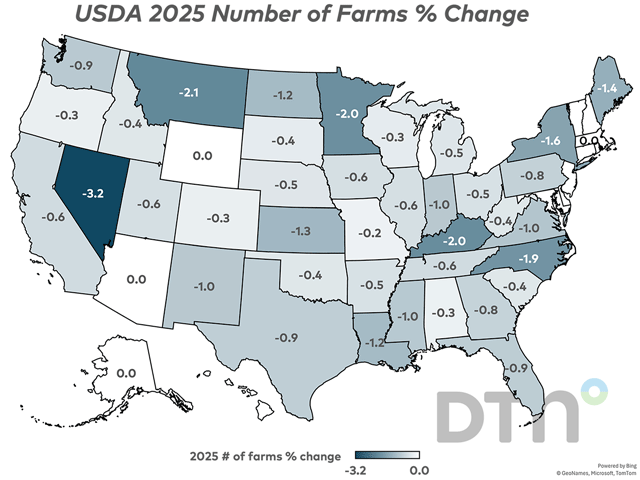RFA Seeks EPA Clarity on RFS Exemption
NEW YORK (DTN) -- The Renewable Fuels Association this week sent a letter to the U.S. Environmental Protection Agency, complaining that there is a lack of transparency in the agency's management of Renewable Fuel Standard's small refinery exemption provisions.
In the letter to EPA Administrator Scott Pruitt, RFA President and CEO Bob Dinneen warned "an ill-conceived and unauthorized expansion of this exemption could destabilize the market for renewable fuels and undermine Congress's goals for the RFS program."
Under the RFS law, the EPA has the ability to exempt small refineries with crude oil throughput of no more than 75,000 bpd from RFS obligations if they demonstrate that the RFS program would lead to "disproportionate economic hardship."
EPA, in consultation with the Department of Energy, examines requests for the exemption on a case-by-case basis. In the past, EPA has generally exercised restraint and judiciousness in issuing such exemptions, presumably because there is little or no evidence that the RFS is causing disproportionate economic hardship, Dinneen said.
P[L1] D[0x0] M[300x250] OOP[F] ADUNIT[] T[]
However, recent reports suggest EPA has received requests for exemptions from dozens of small refiners, and RFA said the public has a right to understand EPA's decision-making process for granting or denying exemption requests.
"Although EPA has indicated that it has evaluated a dozen petitions for exemption for 2016, we are not aware of any instance in which EPA has been willing to disclose any data about the total number of petitions it received and granted for subsequent years, including 2018," Dinneen wrote in its letter to Pruitt.
"EPA recently indicated that a Congressional directive to follow the Department of Energy's recommendations for exemptions could impact how EPA evaluates small refinery hardship petitions and the number and magnitude of exemptions granted. It would be disappointing, to say the least, if EPA now began to increase the number and magnitude of exemptions granted, a decade after the program began," Dinneen noted.
He continued, "As EPA re-evaluates its position [on] what constitutes a disproportionate economic hardship to a small refinery, we hope that EPA will remain true to its previous determination in the 2017 [RFS] Final Rule that obligated parties, including small entities, are generally recovering the cost of acquiring the credits ... necessary for compliance with the RFS standards through higher sales prices of the petroleum products they sell."
Among other things, Dinneen's letter asks EPA to provide information on whether and how the criteria to approve an exemption request that EPA described in its Dec. 6, 2016 memorandum will be amended in light of the Sinclair Refining decision. RFA also wants EPA to publicly disclose, on an ongoing basis, the number of small refinery exemptions granted in 2016, 2017 and subsequent years, and whether each of those small refinery volume reductions were accounted for in that year's or the subsequent year's applicable percentages.
To provide greater certainty for both renewable fuel producers and obligated parties, the RFA letter also suggested EPA should establish an annual cut-off date for receiving and processing any small refinery exemption requests, and ensure that any exempted volumes are proportionally reallocated to the blending obligations for non-exempt refiners.
"The renewable fuels industry and obligated parties deserve greater clarity on the criteria EPA will apply to small refinery petitions going forward," the letter said.
(BA/CZ)
Copyright 2018 DTN/The Progressive Farmer. All rights reserved.



